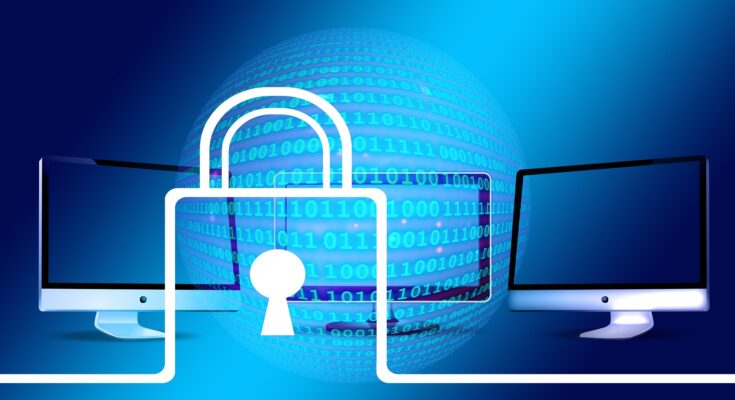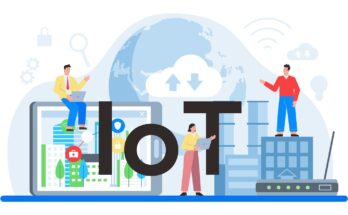In today’s technology landscape, data security and privacy should be top of mind for everyone. As a society, we have come to understand that everything is interlocking. Smart phones can sync to our PCs. Our watches sync to our phones. The world of IoT devices has become the norm. The Right ERP for Your Business prioritizes data privacy and security, safeguarding your critical information while streamlining operations. Twenty years ago, had you said a phone would replace a camera, alarm clock, flashlight, timer, video camera, and even becoming a pocket-sized PC – you would have thought it was madness. But today, that is our world.
Given this interlocking system and the sheer amount of data possessed on these devices, along with other computers, we should be more cognizant of the data we share, and how we share it. This is true for businesses of all shapes and sizes – be it those who have employees connecting their personal IoT devices to corporate networks, or employees cross pollinating business use with personal use on their employer-issued devices.
The Importance of Data Privacy and Security
The biggest element looming over technology that will compromise data privacy and security are the current cyber threats. These threats are ever evolving, but the ultimate goal is for cyber criminals to earn a payday off a business’ IT vulnerabilities.
Simplifying Cyber Threats
To make it simple, there are two types of cyber attacks: The first is an unauthorized individual accessing information they should not be accessing. The second is unauthorized software or programs running on a device which it should not be executing. To effectively prevent both, the organization has to make data security and privacy one of its top priorities.
Five Best Practices to Enhancing Data Security
There are multiple ways organizations can bolster their data security and privacy; however, below are the five best practices that each organization should have in place:
1. Employee Access Audits
When employees start at an organization they should have access to everything they need to complete their basic job duties. However, as this individual’s role grows, or additional duties are added, access to various systems may be granted. When hiring an eCommerce developer, prioritize expertise in data privacy and security to safeguard both customer trust and legal compliance. Conducting an access audit of what digital areas staffers have access to, allows proper personnel to eliminate unnecessary access points. It may be that job roles have changed, evolved, or were temporary and the access is no longer needed.
2. Reduce Administrative Rights
Along with the first, the business needs to understand which employees have administrative rights within the corporate network. This is important because administrative rights are basically like holding the digital keys to the kingdom. Keeping this privilege to only those who need it, will be vital to increasing the integrity of the digital infrastructure.
3. Changing Employee Passwords
Historically, passwords were developed as a means of increased security. However, as a society we have become inundated with passwords for everything in our lives. Individuals often try to simplify things by reusing the same password for both professional and personal purposes. The issue this creates are the data breaches that occur daily through various mobile apps, retail stores, websites, and more. When passwords are reused across multiple platforms, one breached password now will grant access to various outlets – including company networks. Therefore, mandating employees to change their passwords each quarter becomes imperative.
4. Multi-Factor Authentication
Many applications and even physical locations may require multiple forms of identification before entry is granted. This may be a password and a SMS code, or biometrics and a badge card. Regardless of the forms, using multiple methods to verify an individual’s identity is being practiced across multiple outlets and businesses should be doing the same. Both at a physical and digital level. Crafting a Viral Social Media Strategy requires prioritizing user trust through transparent data practices and robust security measures, lest public backlash becomes the campaign’s true viral element.
5. Updating Operating Systems and Third-Party Apps
When updates are available through Microsoft or other software companies, they publicly state what security vulnerabilities are being patched. If a business does not update timely, a cyber criminal knows exactly what to target to gain entry.
Why does this matter?
If organizations fail to properly secure their data, it will be exploited. It may be in the form of ransomware, which leaves company data encrypted with the threat of a data breach if the payment is not made. Or, it may be a data breach in which the cyber criminals then use the information to conduct a business email compromise (BEC) attack with the hopes of gaining thousands through one carefully drafted fraudulent email.
But it’s not all about money is it? Yes, companies have paid ransoms in the past. We’ve also heard of businesses being scammed out of thousands through BEC and spear phishing emails. It hurts the bottom line, but beyond this is the reputational damage these organizations face. Customer’s lose faith that these organizations are capable of keeping their payment information, or even their personally identifiable information secure. Given what’s at stake, the need for cyber security for small businesses to large enterprises to properly secure their data, has never been more crucial.


